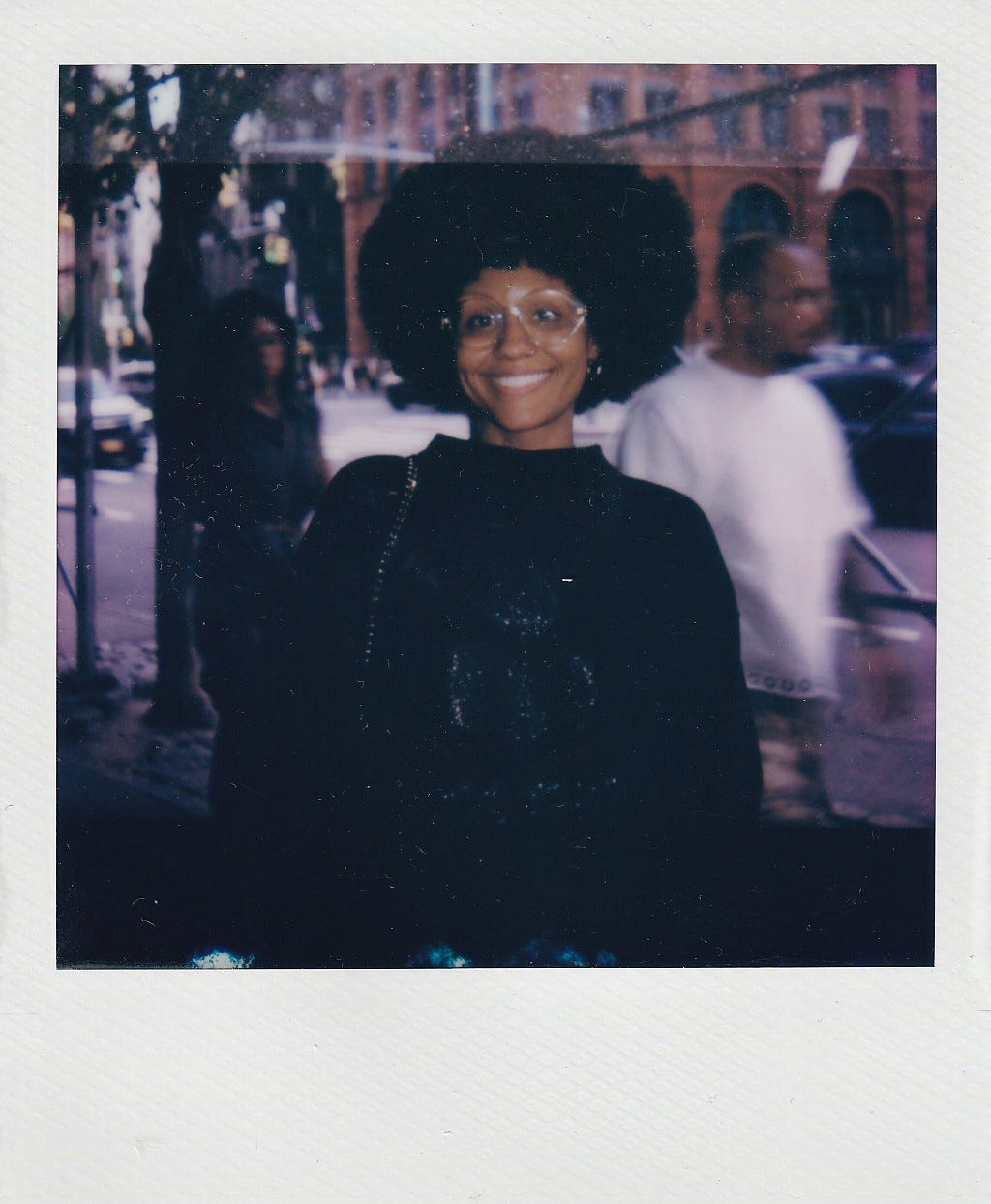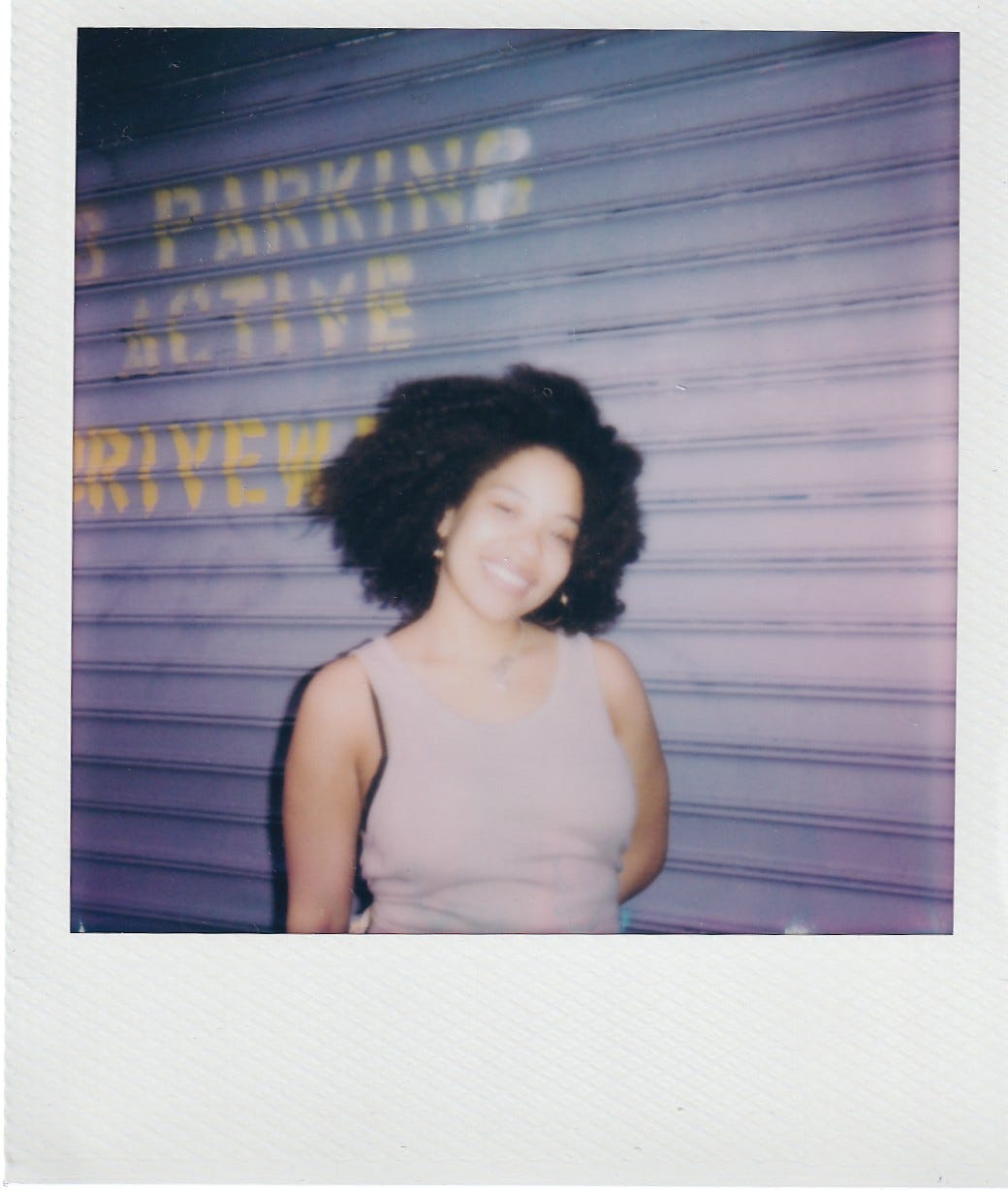A very long time ago, back when I was 15 and stuck in the hellscape that is New Jersey, I had asked my mother, before being dragged to church, if I could do my sister's hair. Being one of the only mixed kids in a majority white and single ethnic area, having my sister by my side was a huge sense of comfort; someone who, though she was 4 at the time, could relate to my experiences.
I washed her hair, used a bit of my products and a bit of hers. Detangled it and made her curls bounce. My mother didn’t quite pay attention to it, but suggested disapproval with a rush to head to the car for the sermon. At the steps of the church, she scolded me and called my sisters' natural hair unkept and “a pile of frizz.”
My sister, now 12, visited me last week. It was my first time seeing her in a full year; My mother sent her to get a keratin treatment.
Hair relaxing is commonplace in the black community. A bit less so now with the revitalization of natural haircare that has been on the rise since the early 2010s, but still prominent enough for salons to dedicate themselves to these temporary “permanent” fixes.
The process involves the destructuring of the protein molecules within hair follicles through the usage of chemicals like formaldehyde and silicones. This leaves those with kinky and curly hair to have looser, more ‘manageable’ textures. Some treatments come out straighter than others, while some allow for simple maintenance at home.
Crystal Perez, 27, is now a natural hair haver, but is no stranger to the concept of a hair relaxer. “When I was little, my mom started relaxing my hair when I was in about elementary [school]. I'm from Miami, and I was around a lot of white Hispanics. Relaxing my hair made me feel a little bit more comfortable with myself, just because there was no one that looks like me there,” said Perez.
Both of her parents, being Cuban Black, come from a diaspora of kinky-curly hair. Though a comfortably large percentage of the Cuban population has afro-roots, discrimination still runs steady enough to lead to hair relaxers in order to fit within the mainstream white culture, an environment Perez is happy to be out of.
“I decided to just grow out my hair and stop relaxing. Once I moved to Atlanta, I started feeling more comfortable. I did the big chop and everything started to feel more comfortable within myself,” said Perez.
Perez currently uses Olaplex as her go-to haircare line when washing and styling. This includes the shampoo, conditioner, leave-in, and gel. The whole kit and kaboodle. Perez claims she’ll never go back to any hairstyle that isn’t natural or afro-based.
The case for manageability seems counterintuitive to the campaign of approaching black hair as an accessible hair type. Joining in on keratin treatments can sometimes add to the perceived notion that black hair isn’t easy to deal with, which isn't the case.
Elena Carter, 34, still rocks her natural hair a majority of the time, but isn’t afraid of having her hair straightened in the namesake of accessibility. “I do love a silk press. I know I hate to admit it, but that's only because I'm an event planner, so I'm very busy. I don't have time to do my hair,” said Carter, who was rocking a sort of twist out from a flexi-rod set.
“I love my curls. I would never compromise my curls, but I would have to be very honest, that it is just very much easier for me to manage my hair when it's straight,” she said. Carter uses a range of products for her hair, but primarily TGIN and Beyoncé’s CECRED line.
“The products are actually very good. I use the clarifying shampoo, I use the moisturizing shampoo, the restructuring mask, and the conditioner,” said Carter.
Much like any black little girl origin story, Carter, too, suffered from the ‘my mom needs my hair relaxed’ phenomenon. Though the endeavor stuck her hard as a kid, it allowed for her evolution to transpire as a young adult to go natural.
“It was a really rare relationship, because I started getting relaxers when I was very young. I think this is because my mother was like, ‘I'm not dealing with this child's hair. ’”
Depending on how and whether or not your hair recovers from treatments and heat damage, many, like Perez, go for ‘the big chop’.
In high school, one of my friends, also mixed liked me, who I’d known throughout middle school, decided that she was done with these perms. She wanted to go natural. So she went for her own big chop.
Chopping off all the ‘dead’ hair that couldn't be revitalized due to years of heat and chemical damage, and starting from scratch. It can be scary, it can be comforting, and it's a test of patience that hopefully the end result is having hair you can call your own.
The journey of a kid whose had their hair permed usually ends in this trajectory. You get tired of the restraints your mother had tied around you, and revitalizing your curls is the first step into womanhood.
For further clarification, my little sister told me she's ‘fine’ with the treatment. She’s a sporty girl who does soccer, softball, basketball, and occasionally track. In theory, it’ll be easier to tie up for practices and meets. So for now, I’ll take her word for it at face value.
But I do believe that the lack of effort to make curly hair manageable and seeking to trade in for straight hair can feel like a complete cop out, especially in an age with multiple resources and methods.




Hiii from Substack Promos reddit ✨
It took me forever to learn to love my hair. Simple’s because I’m from the south and my mom wasn’t taught to love her hair. Instead she was taught about “good hair” and what to do to make my hair my manageable. Long story short, I started wearing weaves young, then wigs, then my hair fell out, big chop, wigs and weaves again and then, when I finally took my hair out of all that and washed it, I cried uncontrollably. 🥀 now I’m natural and I love my hair unconditionally. She’s the best thing about me and I’ll never straighten my hair again. Different styles should be a choice not a necessity to feel pretty or be more palpable to those who don’t look like me. I’m beautiful, as are you and the ladies in the article. We are all beautiful and forever will be. 🖤🌹🤎